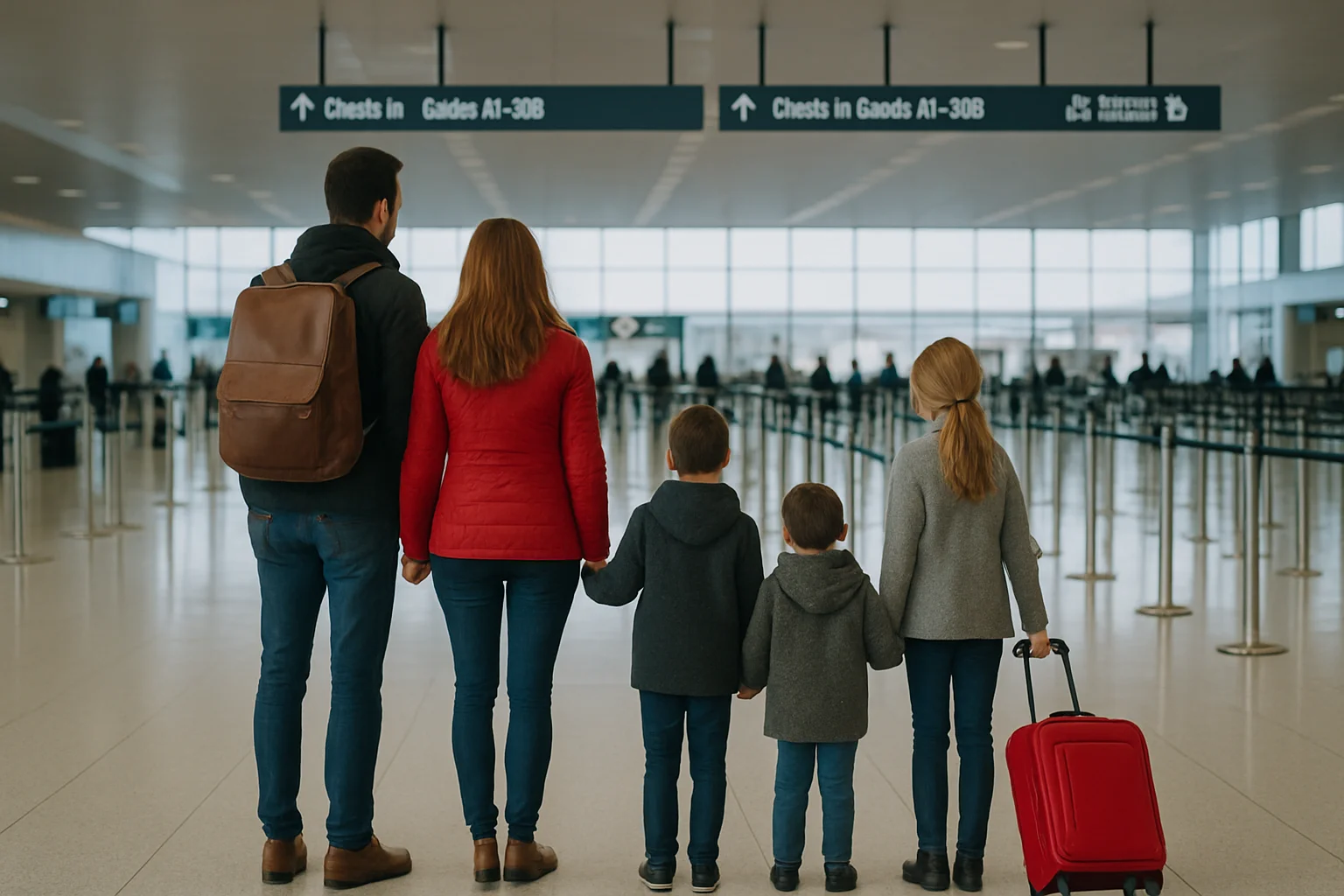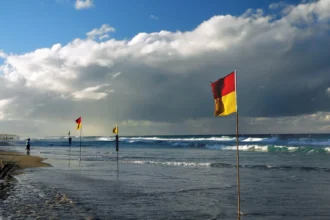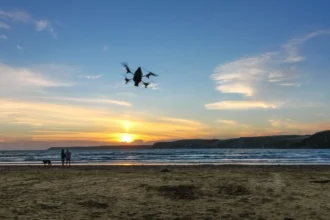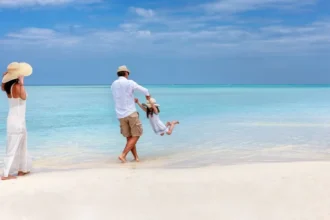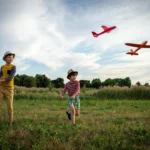A few years ago, a family set off on a travel with kids what was meant to be a one-time trip—a two-month escape from routines, digital noise, and school runs. But as they moved from one country to another, something began to shift—not just in their itinerary, but in their children.
The mother, a former teacher turned remote professional, recalls one moment vividly. It was in Japan. Her six-year-old son, usually buzzing with energy, stood perfectly still in a Kyoto zen garden, silently watching a monk rake patterns into gravel.
“He didn’t ask questions. Didn’t fidget. He just understood,” she says. “That’s when I knew travel was doing something powerful to him.”
Over several years, across more than twenty countries, this family didn’t just collect souvenirs—they collected transformations. And it was the children who changed the most.
This is their story—and how travel changed their kids forever.
Realizing That “Normal” Isn’t Universal
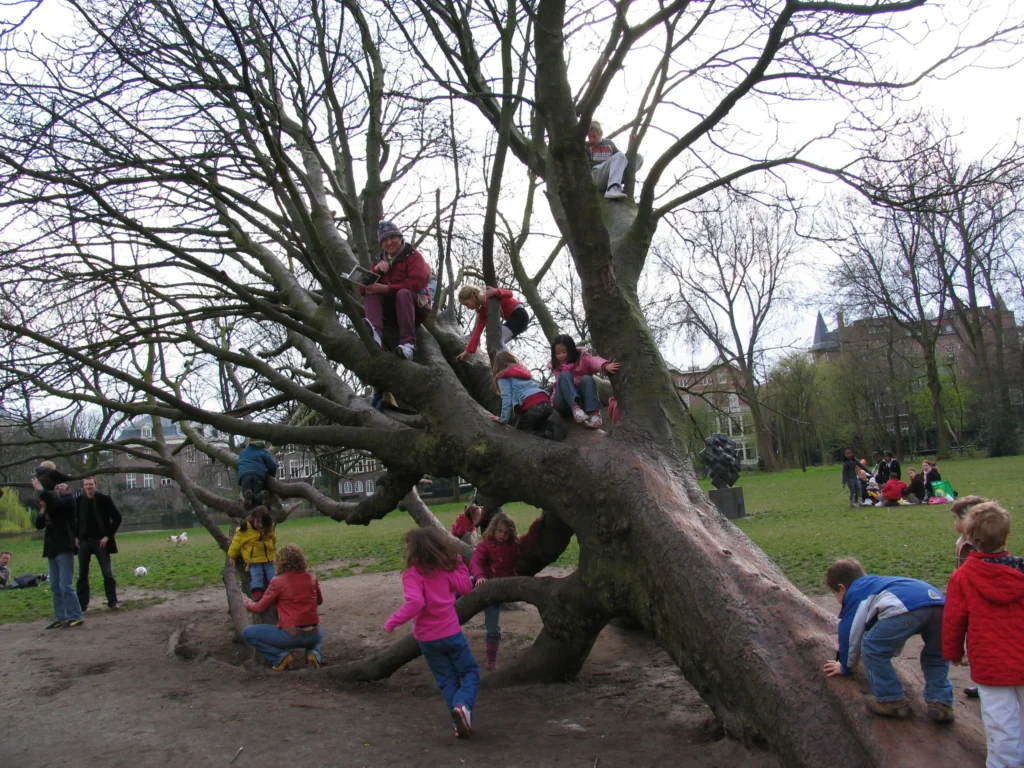
In Morocco, the children ate couscous with their hands and thought nothing of it. In Norway, they joined a local forest school where kids climbed trees and waded through snow daily. And in India, they saw other children their age balancing water jugs on their heads at sunrise.
One evening in Vietnam, the daughter looked at her mom and said, “Everywhere is different—but people are still kind.”
The world had become her lens. Not just what she knew, but how she felt.
Emotional Growth Without a Lesson Plan
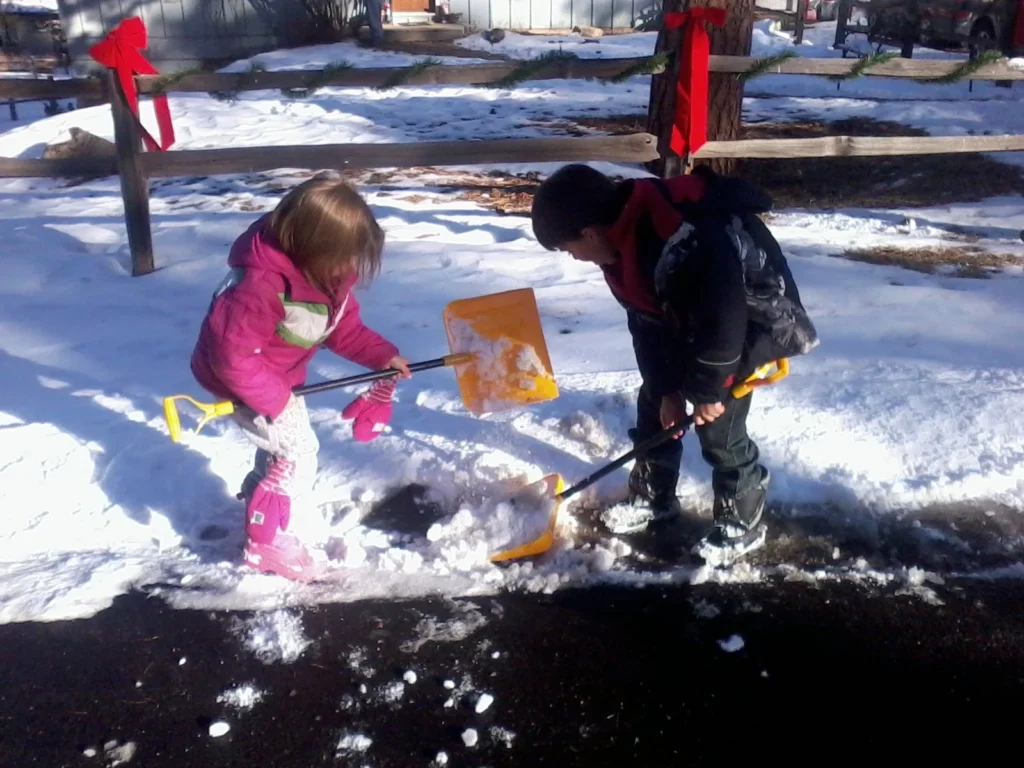
Their father, who had initially been hesitant about long-term travel, noticed something unexpected: emotional intelligence.
His son, barely nine, instinctively offered to help an elderly woman struggling with bags at a bus terminal in Turkey. “He didn’t speak the language, neither did he ask. He just knew,” the dad remembers. “That awareness—he didn’t have it before.”
Through countless cultural exchanges, misunderstandings, and moments of silent connection, the children learned to read emotions more than words.
They picked up empathy before grammar. And that, the parents say, was one of the greatest gifts.
Travel Taught Them Bravery
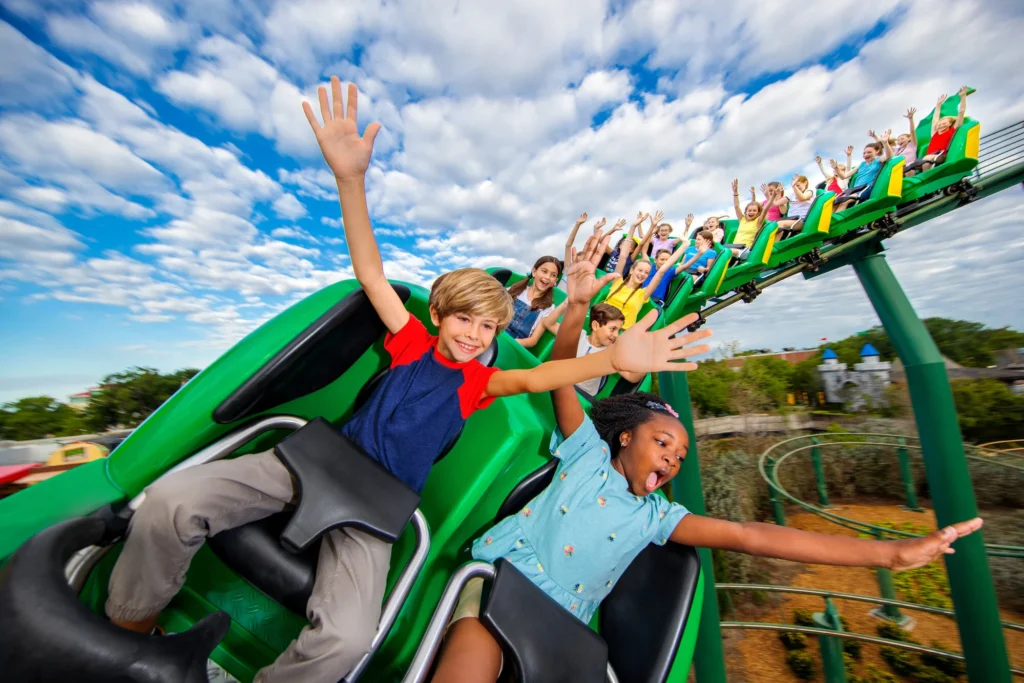
Getting on a rollercoaster is one kind of brave. Asking directions in a language you don’t speak, trying food you don’t recognize, and walking into a foreign school? That’s another.
The family recalls a time in Costa Rica when they missed their connecting bus and were stranded with no internet. The children didn’t panic. They started asking locals for help.
“They were scared—but they acted anyway,” their mom said. “And that’s real courage.”
Learning Became Something They Wanted
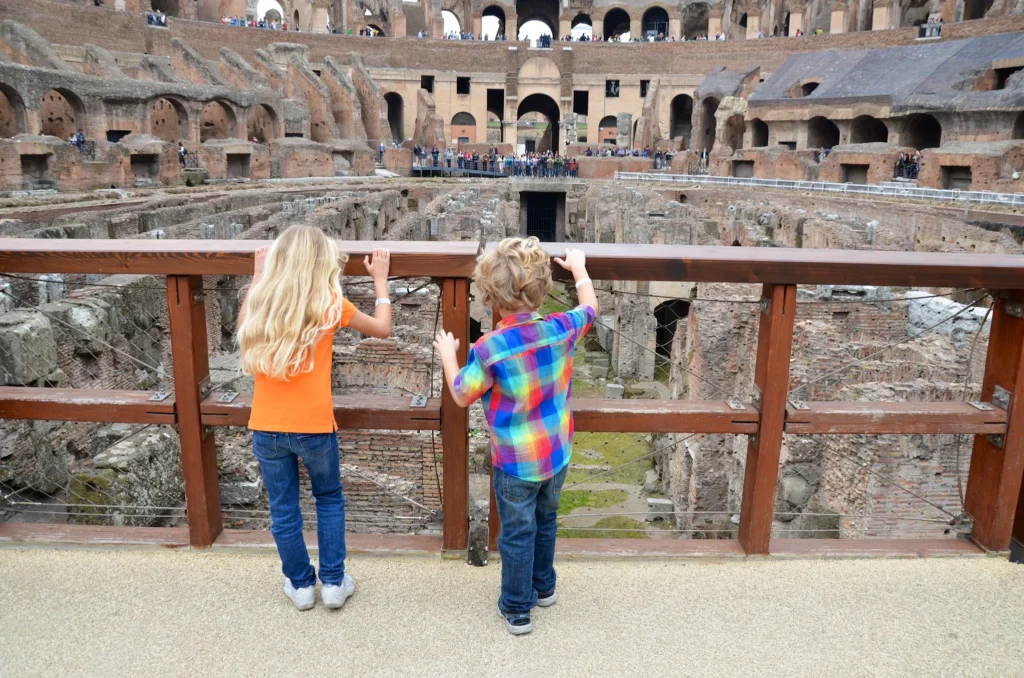
Standing in the Colosseum in Rome, the daughter whispered, “People really died here?” No school lesson had ever moved her like that.
Travel with kids didn’t just teach facts. It taught wonder. History came alive in ruins, art felt intimate in galleries, and science made sense on glacier hikes.
“They started asking questions,” their mom said. “Real questions—not because they had homework—but because they wanted to know more.”
Patience Wasn’t Just a Virtue, It Was a Necessity
There were plenty of delays. Rainstorms that canceled plans. Lost tickets. Long waits in hot border offices.
But something changed over time. The tantrums got shorter. The complaints quieter. They started playing games during waits, reading maps, or simply people-watching.
“They learned that not everything runs on their clock,” the dad said. “And weirdly, they became better at handling disappointment than we did.”
They Let Go of “Stuff”
Before the journey, both kids insisted on bringing suitcases packed with toys. That didn’t last.
By month two, each child was down to one small backpack, a journal, and a few keepsakes. The rest? Donated, lost, or forgotten.
Instead of things, they started collecting experiences. A frog in Bali. A train ride through the Alps. A street festival in Colombia. “They never missed the toys, and were too busy living, their mom said.
They Saw Themselves as Part of a Bigger World
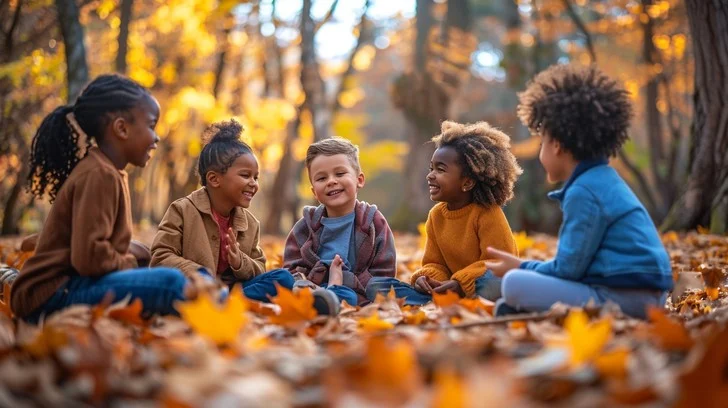
Kids also made friends in hostels, shared meals with strangers, and danced with kids in parks. Learned to say thank you in ten languages and play soccer without knowing the rules.
“They stopped saying ‘they do this’ and started saying, ‘our friends in Mexico do this,’” the parents said. “The world stopped feeling foreign. It felt familiar.”
The Family Grew Closer Than Ever
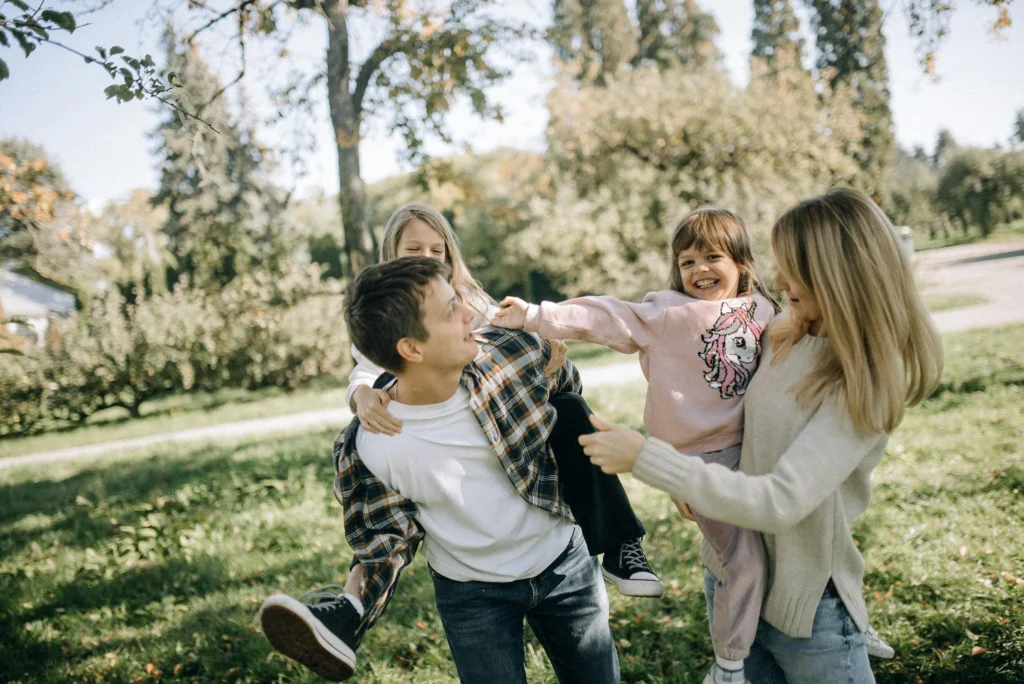
One of the most unexpected gifts of travel? Time. Without daily school routines or work commutes, the family was together—really together.
They played card games by candlelight during power cuts, and cooked together in hostel kitchens. Also shared bunk beds, bugs, and belly laughs.
“They became each other’s best friends,” their mom said. “We were a team.”
Gratitude Took Root
After visiting remote villages with no electricity or running water, the kids no longer complained about WiFi. When they returned home and saw shelves full of food, they paused. They noticed.
“My son hugged his pillow and whispered, ‘I missed this,’” she said. “And it wasn’t just comfort. It was appreciation.”
In the End, Travel Didn’t Just Entertain—It Transformed
This family didn’t travel to fix their kids. They weren’t running from school or chasing Instagram photos. They were simply curious.
But what they found was a deeper truth: Travel didn’t just educate—it elevated.
Their kids came home more curious, more patient, more humble. They didn’t just know the world better—they understood themselves better too.
“The world raised them with us,” their mom often says now. “We gave them the tools. But it was travel that gave them the perspective.”

